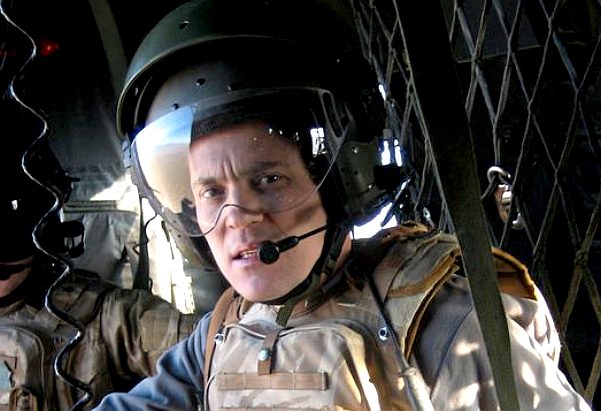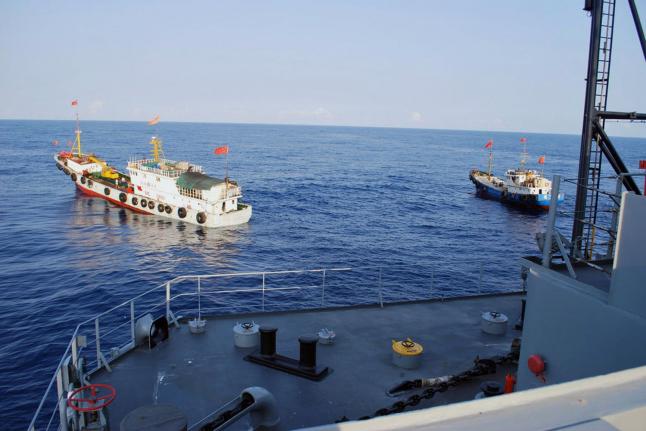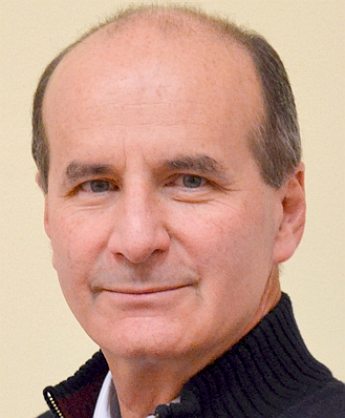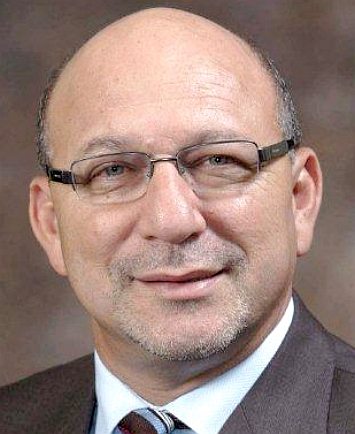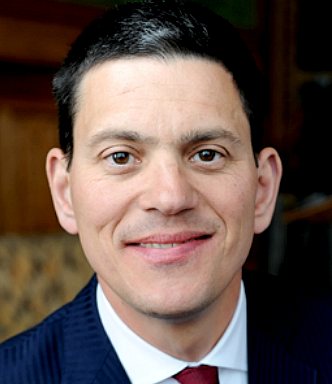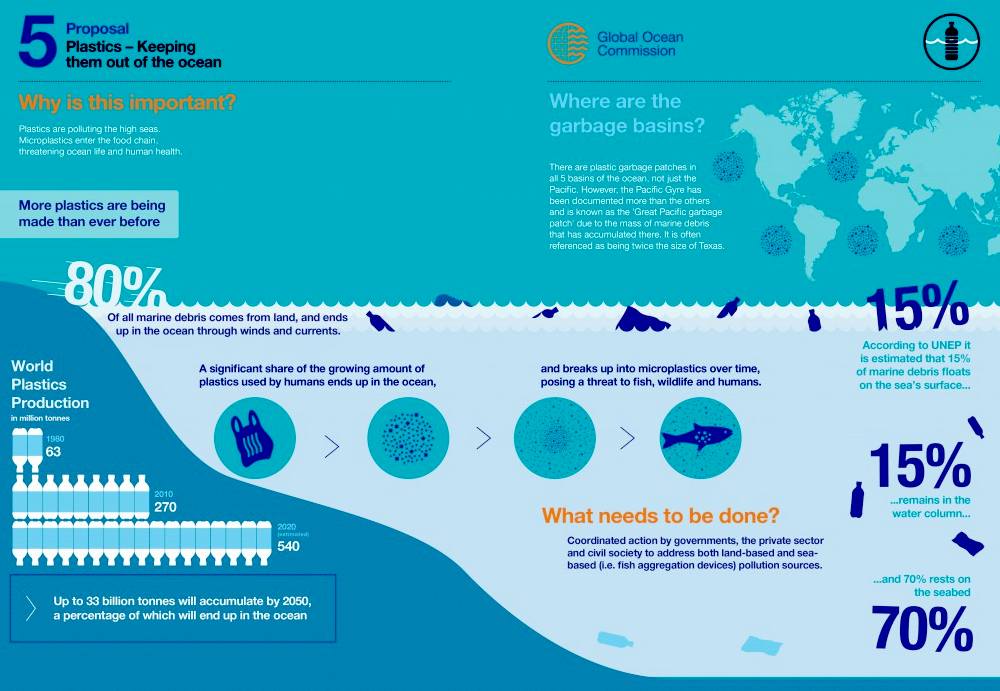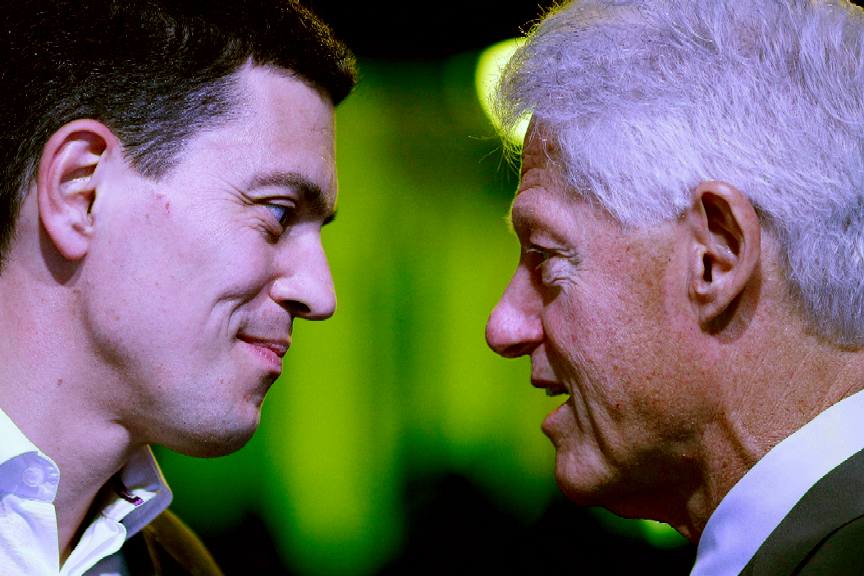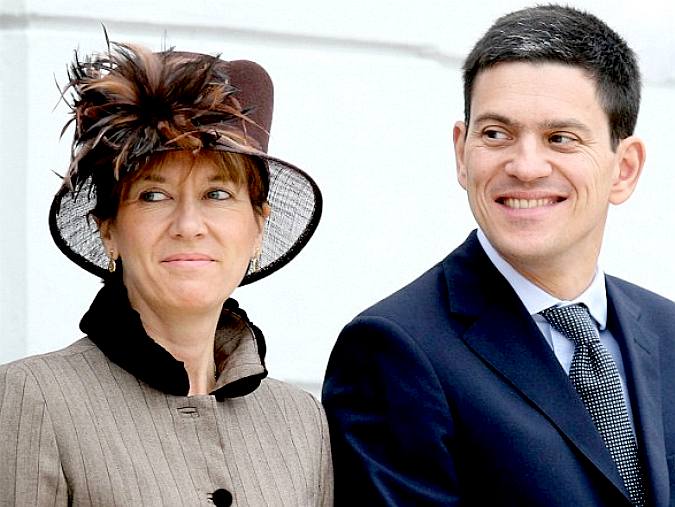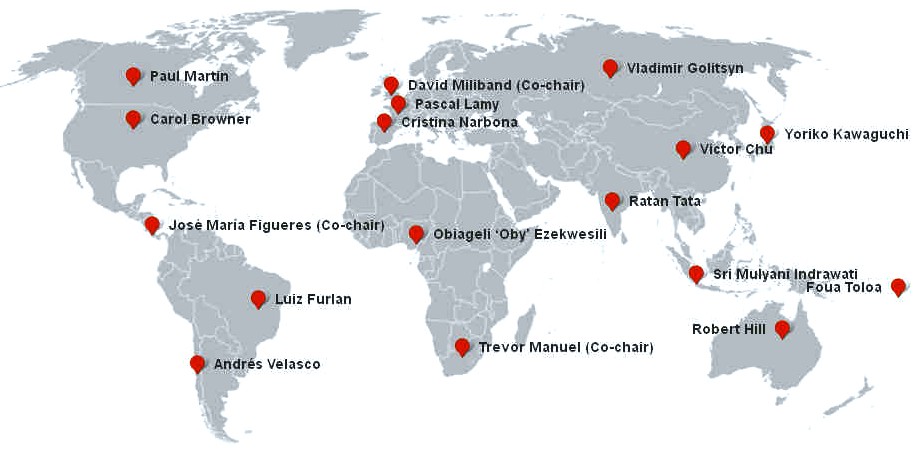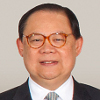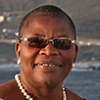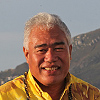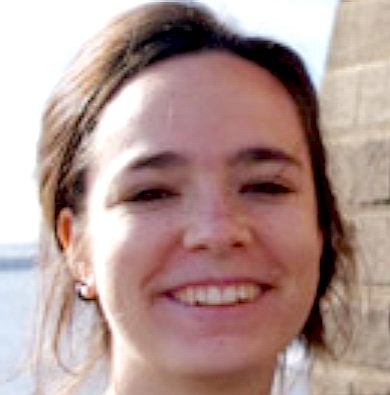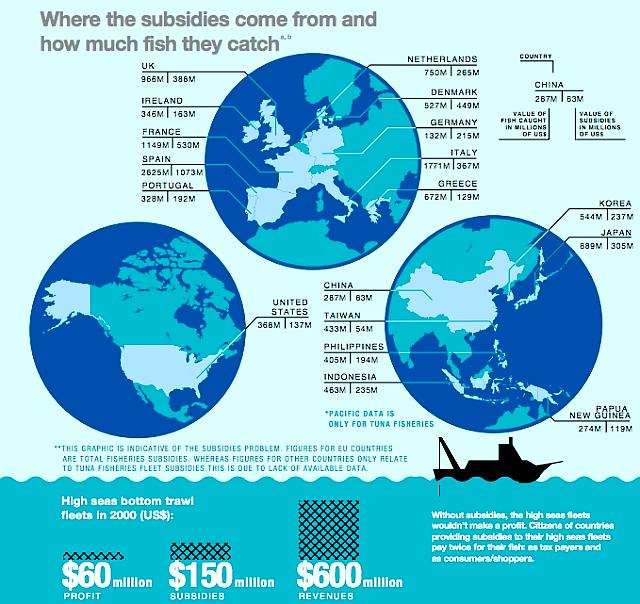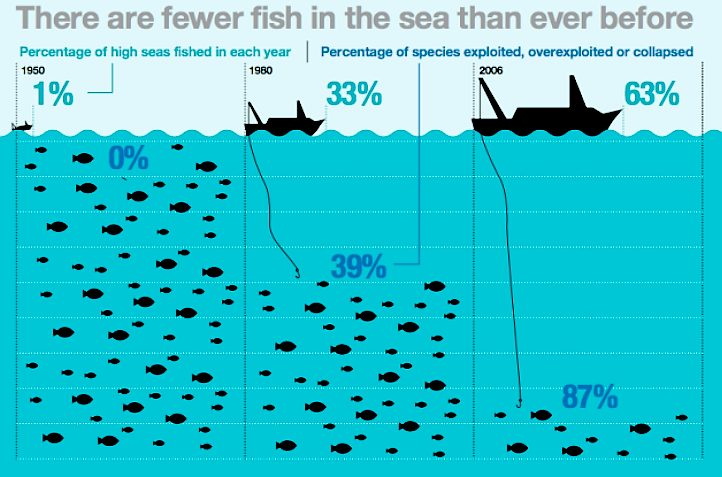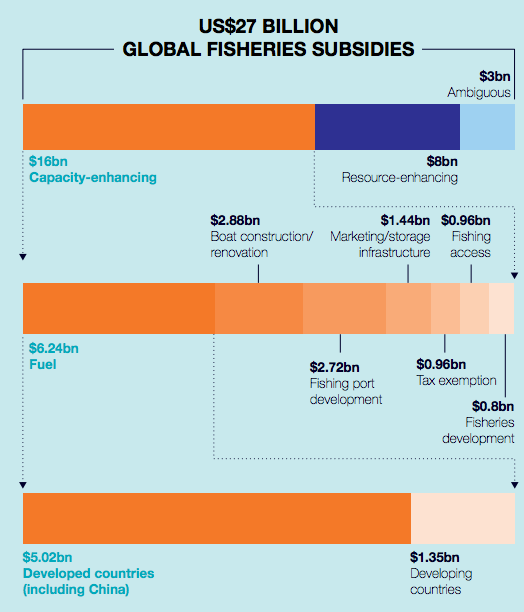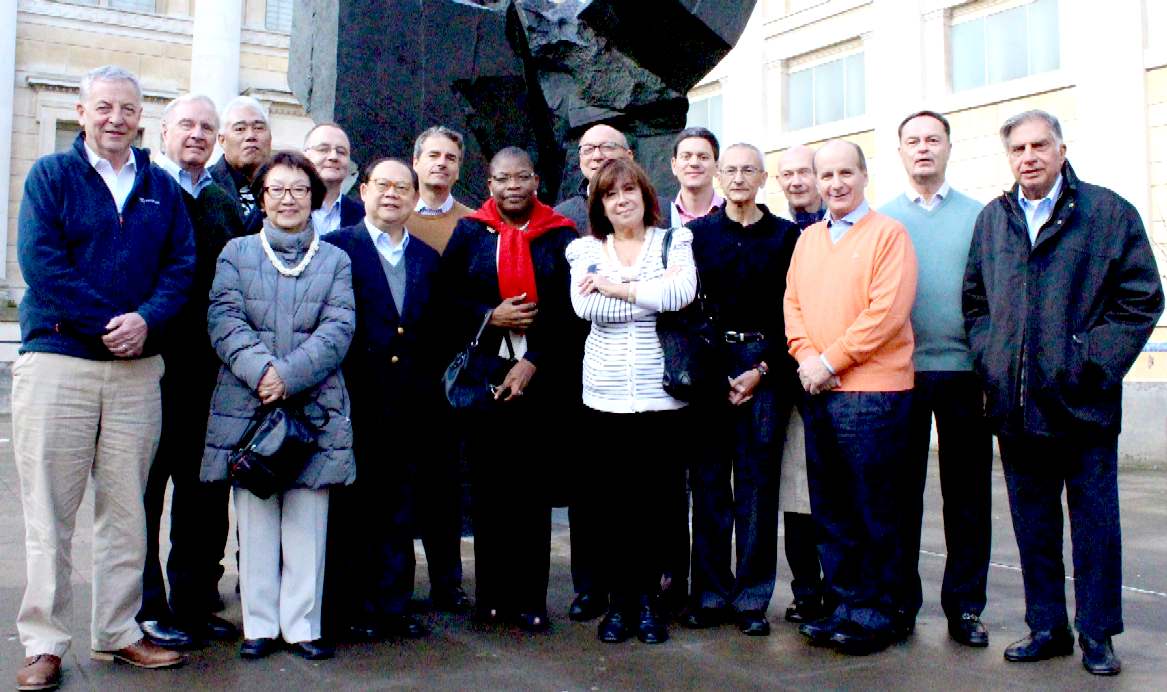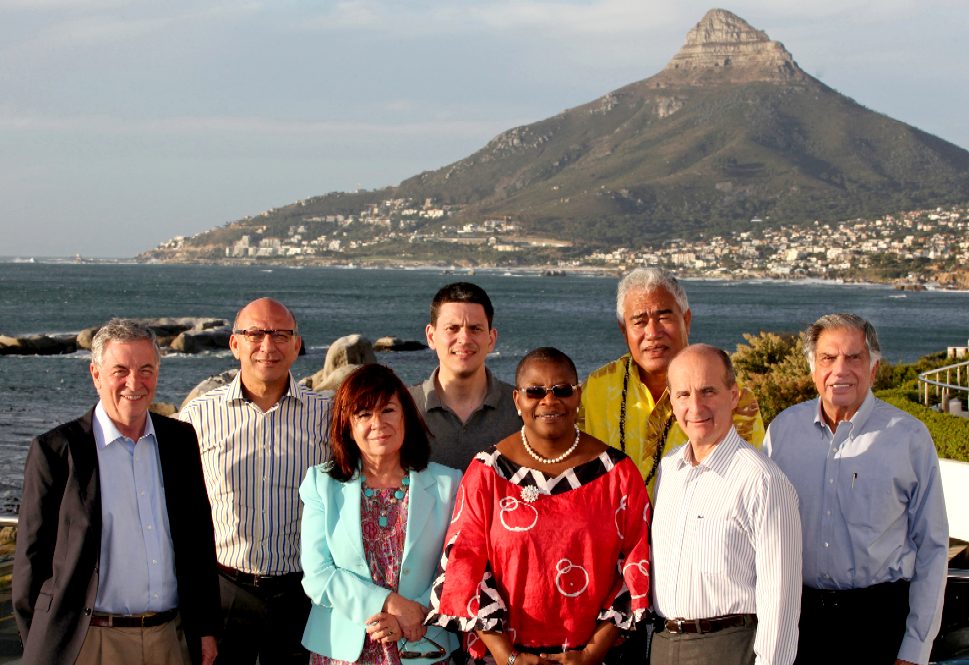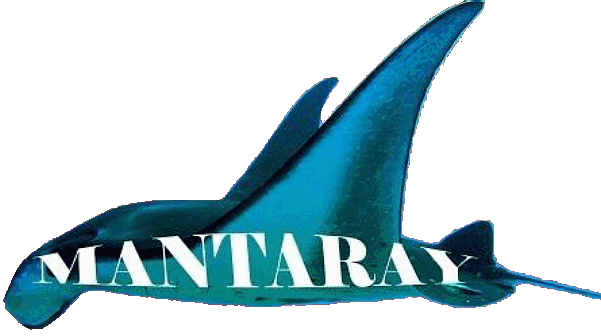|
DAVID MILIBAND
|
||||||||||||||||||||||||||||||||||||||
|
CO CHAIR - David Miliband is President and CEO of the International Rescue Committee (IRC) and a former UK Foreign Secretary. Founded by Albert Einstein, the IRC is a charity that works in more than 40 countries helping refugees and victims of conflict and disaster. Mr Miliband joined the IRC in September 2013 after 12 years as a Member of the British Parliament. His first government post came in 2002 when he was appointed Minister for Schools. As Secretary of State for the Environment from 2006 to 2007, he pioneered the world's first legally binding bill to reduce greenhouse gas emissions. As Foreign Secretary from 2007 to 2010, he oversaw creation of a marine reserve around the Chagos Islands, which remains the world's biggest reserve where no commercial fishing is permitted.
WASHINGTON JUNE 2014 - SEALIFT COMMAND
The Global Ocean Commission says the lawless high seas - the parts of the world's oceans outside the jurisdiction of individual governments - are being degraded by pollution, overfishing and drilling.
"The high seas belong to us all. We know what needs to be done but we can't do it alone. A joint mission must be our priority."
TWO CHINESE TRAWLERS - stop directly in front of the military Sealift Command ocean surveillance ship USNS Impeccable (T-AGOS-23), forcing the ship to conduct an emergency "all stop" in order to avoid collision in the South China Sea on March 8, 2009. The incident took place in international waters in the South China Sea about 75 miles south of Hainan Island. The trawlers came within 25 feet of Impeccable, as part of an apparent coordinated effort to harass the unarmed ocean surveillance ship. (Photo/U.S. Navy)
GLOBAL OCEAN COMMISSIONERS - CO-CHAIRS
GOC OBJECTIVES
The objective of the Global Ocean Commission is to address
the issues hereis by formulating ‘politically and technically feasible
short, medium, and long-term recommendations.
The Global Ocean Commission
UK+44 (0) 1865 280747
CO CHAIR - David Miliband mixes it up with presidents, fellow MPs, actors and the most important person in his life, his wife Louise.
GLOBAL OCEAN COMMISSIONERS - A map of the world showing the location of the GOC's commissioners.
THE COMMISSIONERS
RICH COUNTRIES PAY ZOMBIES $5 BILLION A YEAR IN SUBSIDIES TO PLUNDER THE OCEANS
- Without the subsidies, most of these businesses would fail. So thoroughly have industrial fleets
over-fished the seas that they couldn’t afford the fuel to travel the ever-increasing distance needed to catch the same amount of fish if their governments didn’t lavish public funds upon them.
RICH COUNTRIES PAY ZOMBIES $5 BILLION A YEAR IN SUBSIDIES TO PLUNDER THE OCEANS
- If industrial fleets weren’t subsidized, they’d go out of business. Small-scale fisheries that don’t need enormous amounts of fuel to catch huge hauls of
fish - i.e. the ones using sustainable fishing practices - would then in theory thrive. Many of these fishermen are in poor countries whose governments can’t afford to compete in the industrial looting.
RICH COUNTRIES PAY ZOMBIES $5 BILLION A YEAR IN SUBSIDIES TO PLUNDER THE OCEANS
- Not all subsidies are bad. In fact, subsidies to promote fishery resource conservation and
management - things like stock assessments and stock monitoring - are exactly the kinds of things we should be pressing our governments to foot the bill for. But some $16 billion in subsidies goes exclusively toward making it cheaper to catch more fish. That’s a problem, given that the global deepwater fleet is already 2.5 times bigger than what the GOC says is sustainable to maintain global fish stocks.
The Global Ocean Commission at its meeting in Oxford, 21st-23rd November 2013 (left to right) Robert Hill, Paul Martin, Foua Toloa, Yoriko Kawaguchi, Simon Reddy (Executive Secretary), Victor Chu, Andrés Velasco, Obiageli Ezekwesili, Trevor Manuel (Co-chair), Cristina Narbona, David Miliband (Co-chair), John Podesta, Pascal Lamy, José María Figueres (Co-chair), Vladimir Golitsyn, Ratan Tata.
LINKS & REFERENCE
UPI Science News 2014 June group calls for reforms to protect oceans from fishing drilling and pollution Telegraph US-royal-tour-Prince-of-Wales-makes-plea-for-cleaner-oceans Prince-of-Wales-speech-hrh-the-prince-of-wales-event-titled-plastic-the-marine-environment-scaling Daily Mail Charles-horrified-toll-plastic-dumped-sea-Prince-Wales-plea-solve-issue-sake-future-generations The Guardian environment 2015 March 19 Prince-charles-calls-for-end-to-dumping-of-plastic-in-worlds-oceans http://abcnews.go.com/US/wireStory/prince-charles-speaks-dangers-plastic-waste-oceans-29736519 National Geographic news 2014 June Global-ocean-commission-report-high-seas-fishing-environment Virgin leadership and advocacy introducing global ocean commission Wikipedia European_Commissioner_for_Maritime_Affairs_and_Fisheries Reuters 2013 US oceans new global group to clean up National Geographic 2014 global-ocean-commission-report-high-seas-fishing-environment http://en.wikipedia.org/wiki/European_Commissioner_for_Maritime_Affairs_and_Fisheries http://www.virgin.com/unite/leadership-and-advocacy/introducing-global-ocean-commission http://www.scienceifl.com/ocean-plastic-pollution.htm http://abcnews.go.com/US/wireStory/prince-charles-speaks-dangers-plastic-waste-oceans-29736519 http://www.globaloceancommission.org/ http://time.com/3750375/environment-prince-charles-oceans/ http://news.nationalgeographic.com/2015/03/150318-prince-charles-oceans-trash-plastic-britain/ http://en.wikipedia.org/wiki/Global_Ocean_Commission http://www.itv.com/news/2015-03-18/prince-charles-makes-impassioned-plea-for-oceans-clean-up/
ACID OCEANS - ARCTIC - ATLANTIC - BALTIC - BERING - CARIBBEAN - CORAL - EAST CHINA - ENGLISH CH GULF MEXICO - GOC - INDIAN - MEDITERRANEAN - NORTH SEA - PACIFIC - PERSIAN GULF - SEA JAPAN - STH CHINA PLANKTON
- PLASTIC
- PLASTIC
OCEANS - UNCLOS
- UNEP
- WWF
|
||||||||||||||||||||||||||||||||||||||
|
This website is Copyright © 2015 Bluebird Marine Systems Ltd. The names Bluebird™, Bluefish™, SeaNet™, SeaVax™ and the blue bird and fish in flight logos are trademarks. CONTACTS The color blue is a protected feature of the trademarks.
|
